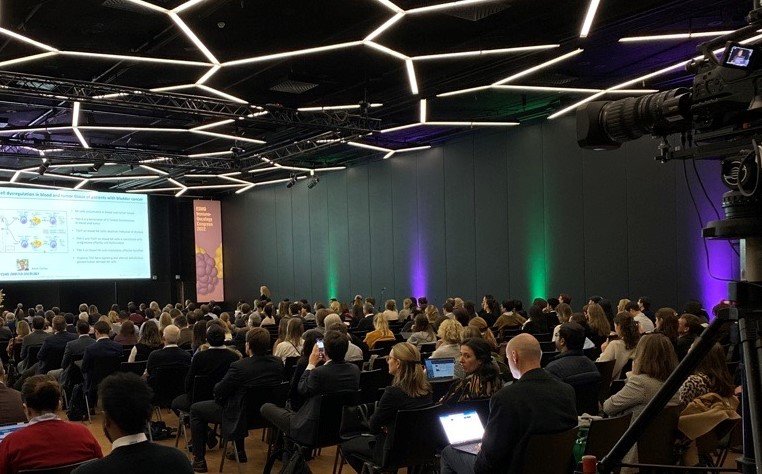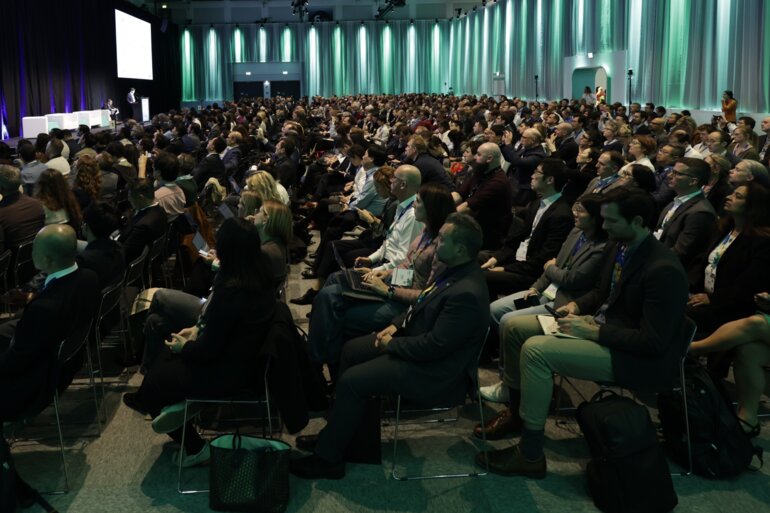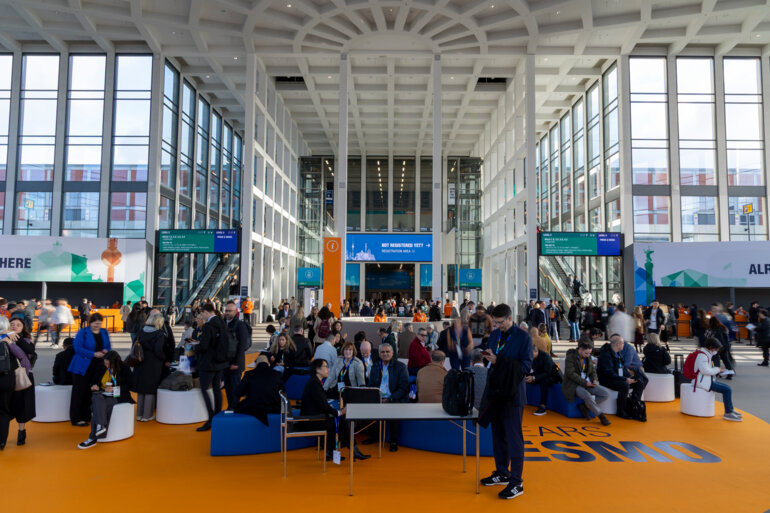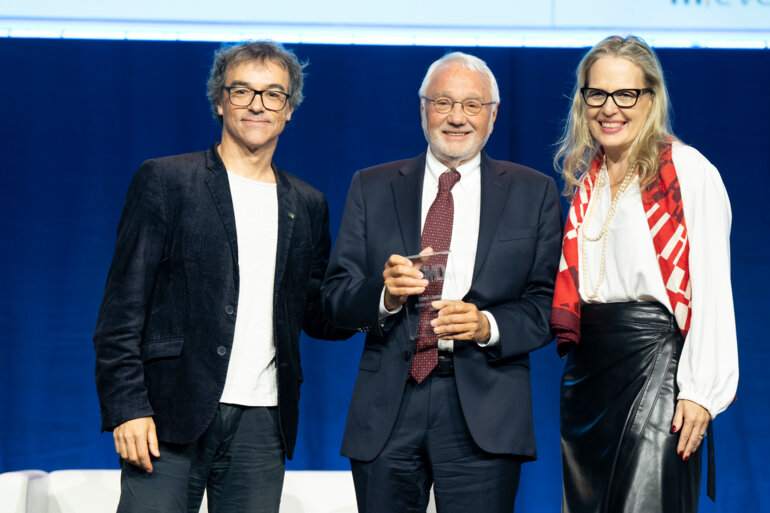Positive results from a phase II trial adds weight to the value of immunotherapy as neoadjuvant treatment for resectable NSCLC
Encouraging findings for camrelizumab plus chemotherapy in the neoadjuvant treatment of stage IIIA and IIIB(T3N2) non-small-cell lung cancer (NSCLC) were presented at ESMO Immuno-Oncology Congress 2022 (Geneva, 7–9 December) (Abstract 56O). Results from a phase II trial demonstrated a significant increase in the primary endpoint of pathologic complete response (pCR) from 8.9% with platinum-based chemotherapy alone to 32.6% with the addition of the anti-PD-1 immune checkpoint inhibitor (p=0.0079) in 88 patients who received definitive surgery within 4–6 weeks.
Compared with chemotherapy alone, camrelizumab plus chemotherapy also improved major pathologic response from 15.6% to 65.1%, as well as objective response rate from 53.3% to 72.1%. One-year disease-free survival was 81.4% with chemotherapy and 93.2% with camrelizumab plus chemotherapy. Overall, adverse events (AEs) were similar between the two groups, except that grade ≥3 AEs and grade 1–2 reactive cutaneous capillary hyperplasia were more common with camrelizumab plus chemotherapy (25.6% and 44.2%, respectively) than with chemotherapy alone (11.1% and 0%, respectively).
“These preliminary data appear to be perfectly in line with trials of neoadjuvant nivolumab plus chemotherapy in resectable NSCLC, including the CheckMate 816 phase III trial (N Engl J Med. 2022;386:1973–1985) and the NADIM II phase II trial (J Clin Oncol. 2022;40(Suppl 16):Abstr 8501),” says Prof. Federico Cappuzzo from the IRCCS Regina Elena National Cancer Institute, Rome, Italy, discussing the findings. “Considering the population involved in the camrelizumab study, it may be that the immunotherapy plus chemotherapy combination is particularly effective where there is mediastinal lymph node involvement.”
Stage IIIA and IIIB NSCLC frequently represents a heterogenous group of patients, where the tumour is often classified as marginally resectable. Chemotherapy may be used to reduce the tumour size, but Cappuzzo thinks that neoadjuvant therapy should be more than simply a facilitator for surgery. “There is preclinical evidence that immunotherapy before surgery can promote an antitumour response and, as seen at ESMO Congress 2022 in resectable melanoma, pembrolizumab was more effective in the neoadjuvant setting than as adjuvant therapy (Ann Oncol. 2022;33(Suppl 7):S808–S869),” he comments. “Inducing high rates of pCR – predictive of long-term survival and potential curability – seems possible with the immunotherapy–chemotherapy combination and I agree that it should become the standard of care in patients with resectable stage IIIA or IIIB NSCLC.”
Abstract discussed:
Lei J, et al. A randomized, controlled, multicenter phase II trial of camrelizumab combined with albumin-bound paclitaxel and cisplatin as neoadjuvant treatment in resectable stage IIIA and IIIB(T3N2) non-small-cell lung cancer. ESMO Immuno-Oncology Congress 2022, Abstract 56O
Proffered Paper Session 07.12.2022, h. 14:05 – 15:40, Room B. Also watch the session on the Congress virtual platform







